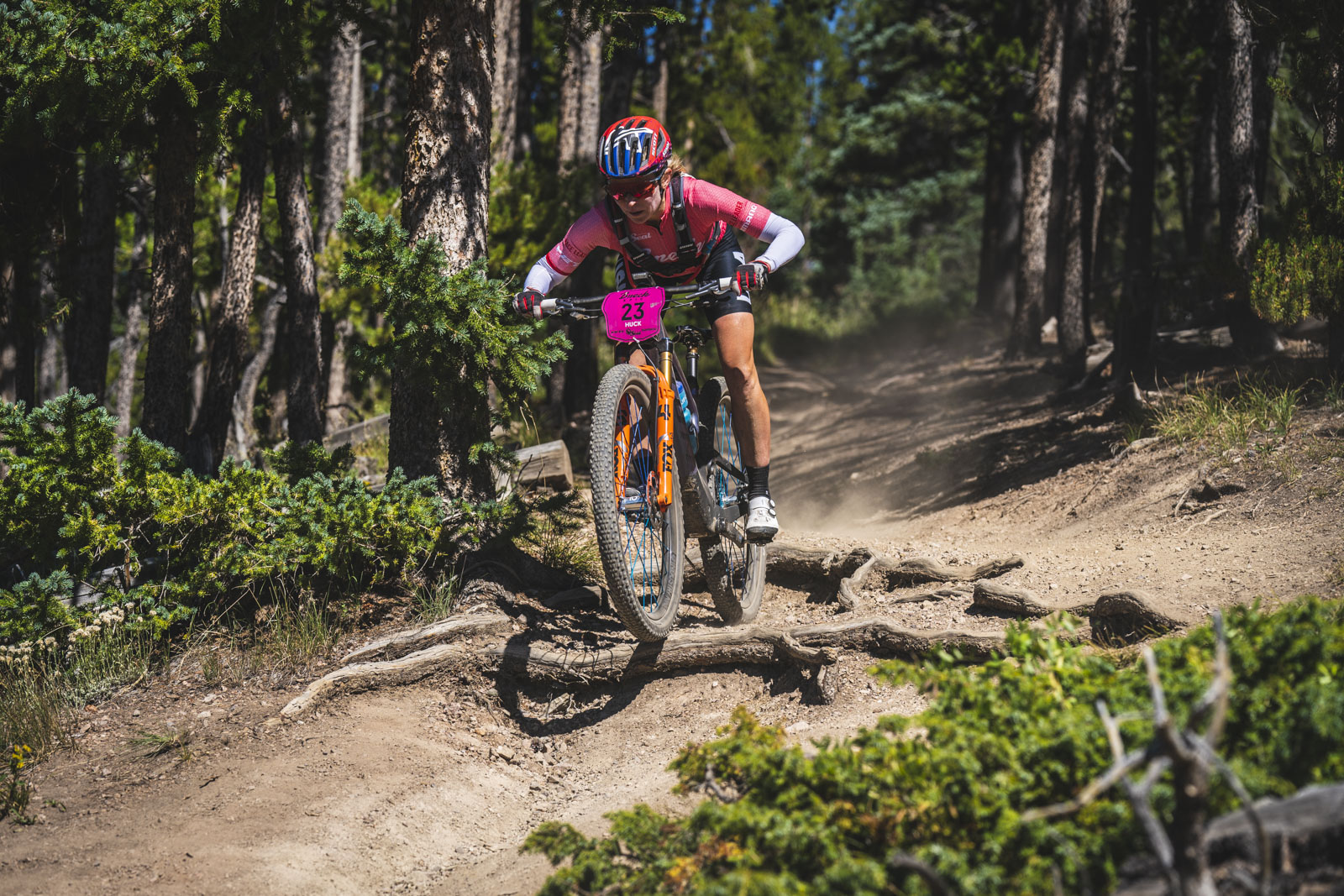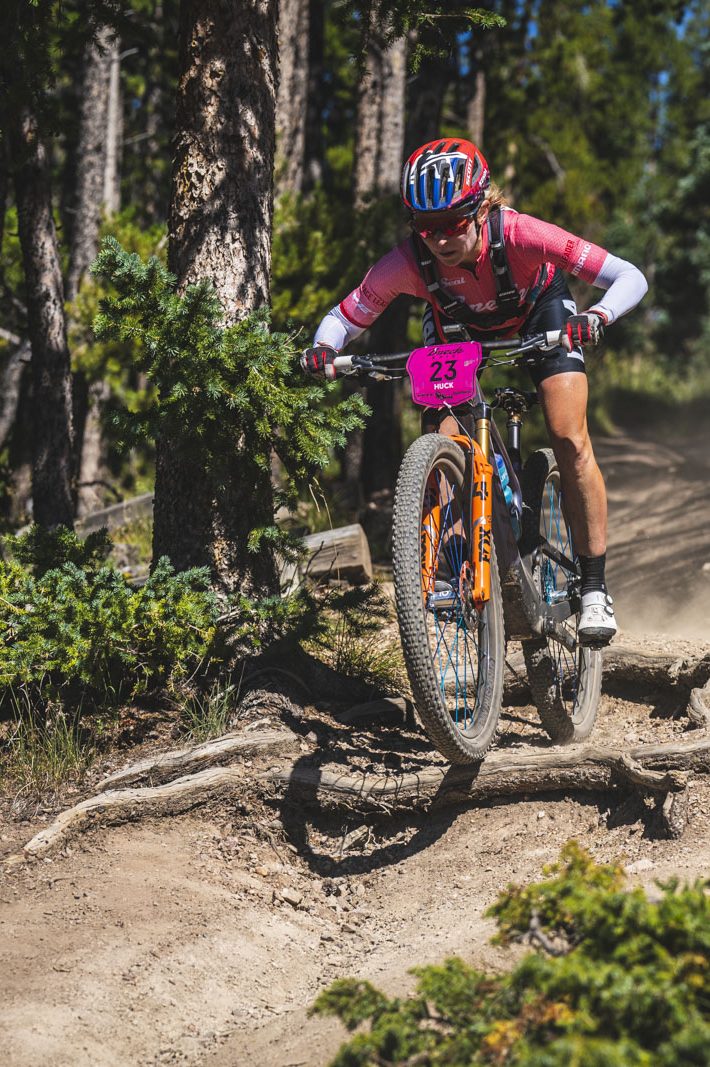How do you grow women’s bike racing?
That’s a persistent, perennial question in the sport, and there aren’t easy answers. Increase the prize money is one common response, and that’s part of the strategy that Life Time Sports is taking with its Grand Prix series and its six-figure purse. But when you’re not a large, publicly traded company with commensurate resources, it requires a different approach. The result of all that experimentation could create a range of strategies and ideas to help increase women’s participation.
For Breck Epic promoter Mike McCormack, the answer is making women – especially the pro field for his event’s signature six-day cross-country trail race – the event’s primary focus. Because it’s all too easy for them to not be the focus. “I can put up a [social media] post with Kat Nash, who’s wonderful, magnificently talented, and a fantastic human being, and then her equivalent on the men’s side, Lachlan Morton, who’s just irresistibly adorable. And Kat’s [post] will receive a comparatively smaller audience,” McCormack noted. He can’t control the response to those efforts but, McCormack says, he does have control over the race’s own focus.
McCormack intends to pull those levers in every way possible, from easing women racers’ financial burden to helping them market their performances and stories, in effect building an entire support structure around the women’s race to not only lower barriers but increase the riders’ profile. Because McCormack is a marketer who likes acronyms and puns, the overall plan is called BEWT – Breck Epic Women’s Tour.
Here’s the full rundown, which McCormack announced this week in an e-mail to racers:
- Comped entry fee for female pros (if sponsors opt to pay their rider’s entry fee, the rider can gift an entry to any other woman in any field)
- Complimentary tech space at Breck Epic and discounted expo space at the Breck Bike Week (which runs concurrent to the Epic) for female pros’ sponsors
- Making the women’s race the focus of the Epic’s own PR and media outreach and social promotion, and offering riders full access to the event’s 2024 image library and some select past images, for free, for their own channels
- A bigger-better year two of the Women’s Cycling Summit, also concurrent with the Epic
Other plans are TBD, but also in the works are host lodging, a bump in the prize purse (currently $5,000 each for the pro men’s and women’s fields), and connecting racers with local childcare services. If riders can get themselves to Breck, McCormack is saying, the race will try to take care of as much of the rest as possible.
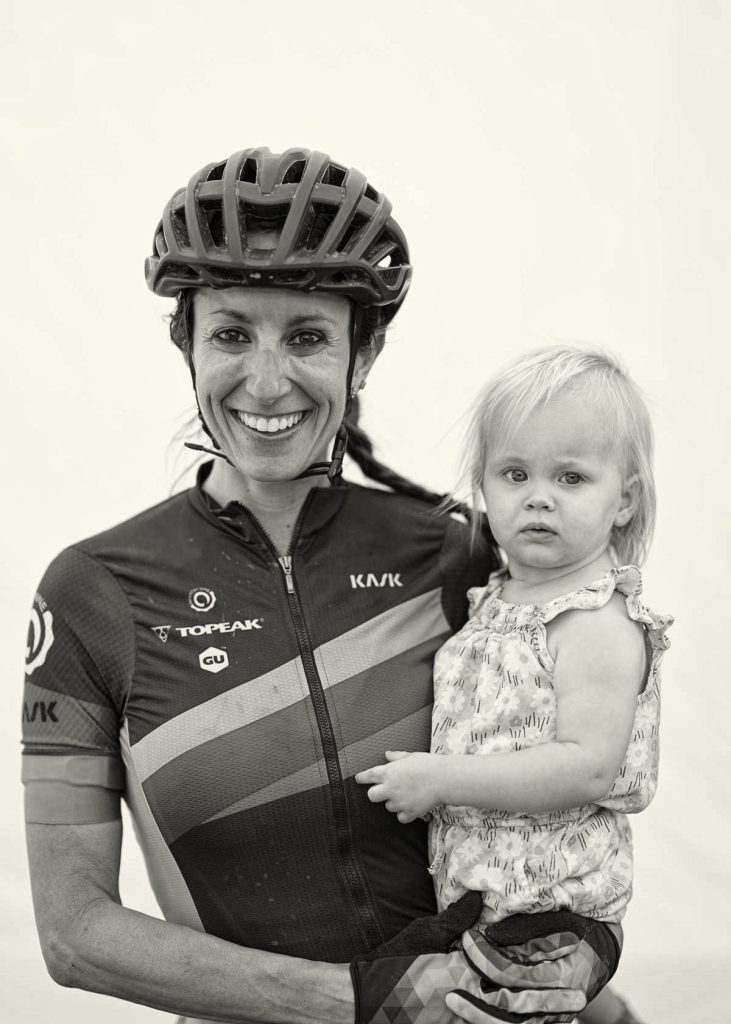
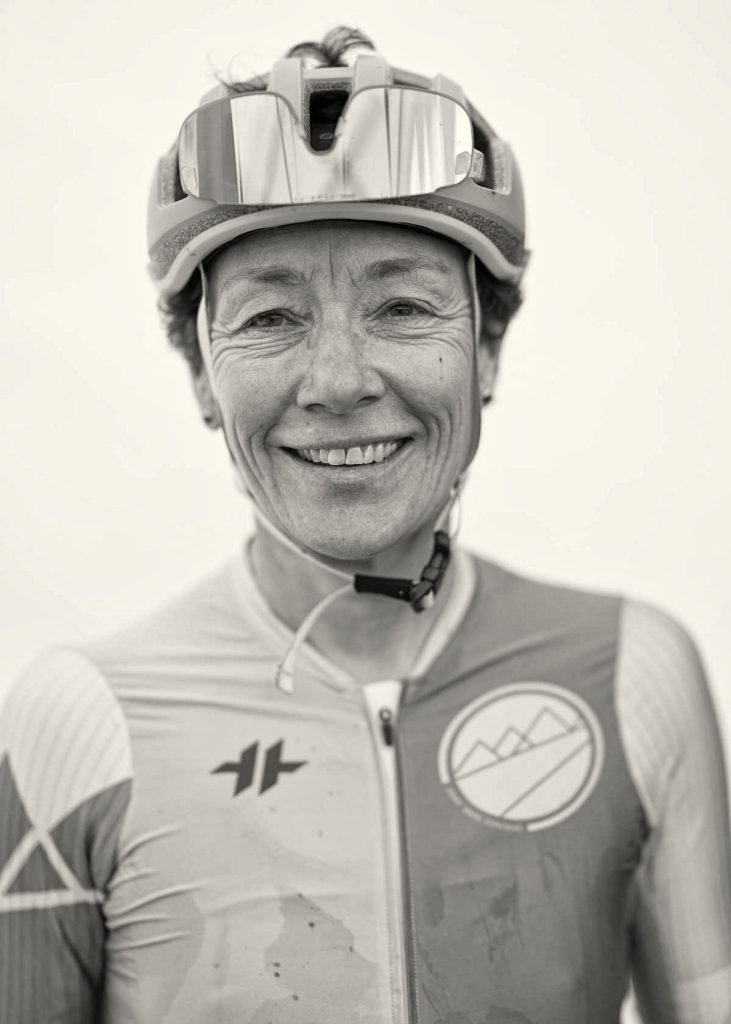
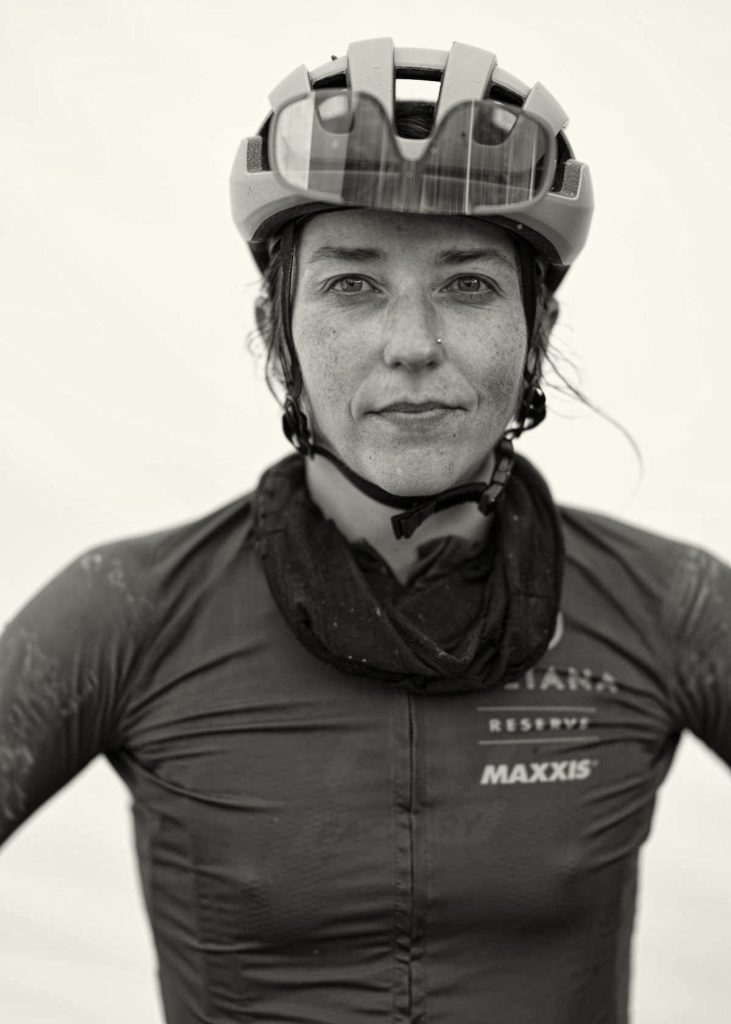
BEWT is new, but its genesis isn’t. Two years ago, McCormack was dissatisfied that female participation in the Epic was about 15% of the total entries. So he started talking to women, including organizing an informal town hall of sorts at that year’s race, where he mostly took notes as attendees offered their perspective. His big question there and in subsequent conversations: What’s holding women back? Answers varied depending on who he asked. In a discussion with Amity Rockwell at the Rebecca’s Private Idaho race, she told him, simply, “You could just make [race entry] free.” So for 2024, it is.
Another key sounding board was Sonya Looney, who came up with the idea for last year’s first Women’s Cycling Summit and co-founded it with McCormack. She also noted free entry for female pros as a major step, but credited the effort to help provide media coverage and content for increasing exposure and sponsor value for women racers as another key initative. The net effect of that is broader than just for those pros. “People’s belief that they can do something comes from performance experiences and vicarious experiences – building confidence through doing the activity or seeing another person do the activity they aspire to do,” she told Escape Collective. “Having more women racing will snowball into even more women racing.”
Will it work? It’s too early to tell. For one, the six-day 2024 Epic starts August 11, the day after the Leadville 100 mountain bike race, which is a signature event in the Life Time Grand Prix. Riders can do both, but following an off-road century with six straight days of rugged singletrack makes for a full week of hard racing at high altitude. And the Grand Prix’s $300,000 series prize purse (divided equally between the men’s and women’s pro fields) is hard to ignore. The Grand Prix has equal representation in its pro fields, at 30 riders each; after much discussion, the 2024 series will also feature separate start waves for women.
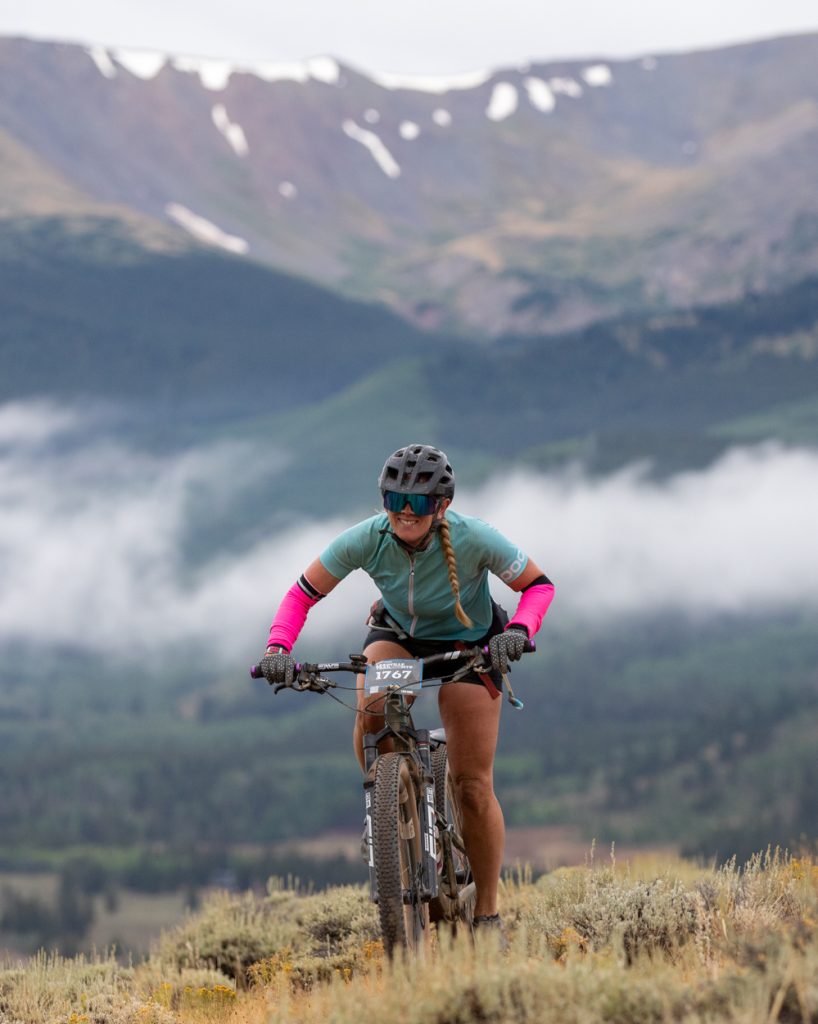
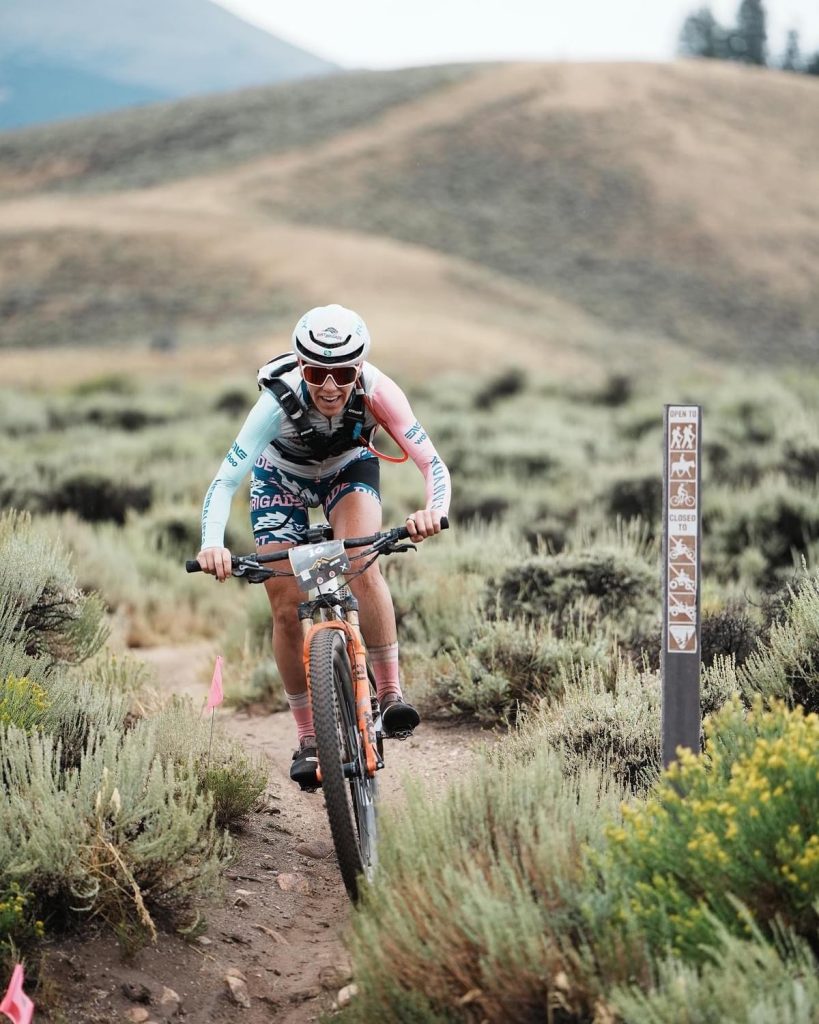
The truth is, the sport needs both approaches, and others as well. Unsanctioned racing provides a laboratory that exists outside of the UCI’s rules structure, where promoters like McCormack and Life Time are free to experiment with different approaches and shift strategies or refine them based on the results. The hope is that what works will get picked up by other races. McCormack told me that after he published the plans for BEWT he had a reflexive moment of anxiety that he was sharing too much, before reminding himself that if the blueprint is successful, other event promoters adopting it – piecemeal or wholesale – would have more impact than trying to keep it limited to his own event.
McCormack – who emphasized he admires Life Time and its events – is confident that his approach will draw rising interest from women competitors. “Most things I’ve done well in terms of race production equate to being a good waiter,” he noted. “Figure out what people need and have it there.” And it makes all the sense in the world to focus on women’s racing, which he said is not only underserved, but has unrealized potential. “I think that there are a lot of eyes on women’s sport right now,” he said. Whether current racers or future ones, or even just fans, he thinks, “people are ready for those stories.”
NOTE: a previous version of this article erroneously stated that Sonya Looney helped run the Women’s Cycling Summit. The summit was her idea, and she is a co-founder of the event. This article has now been corrected.
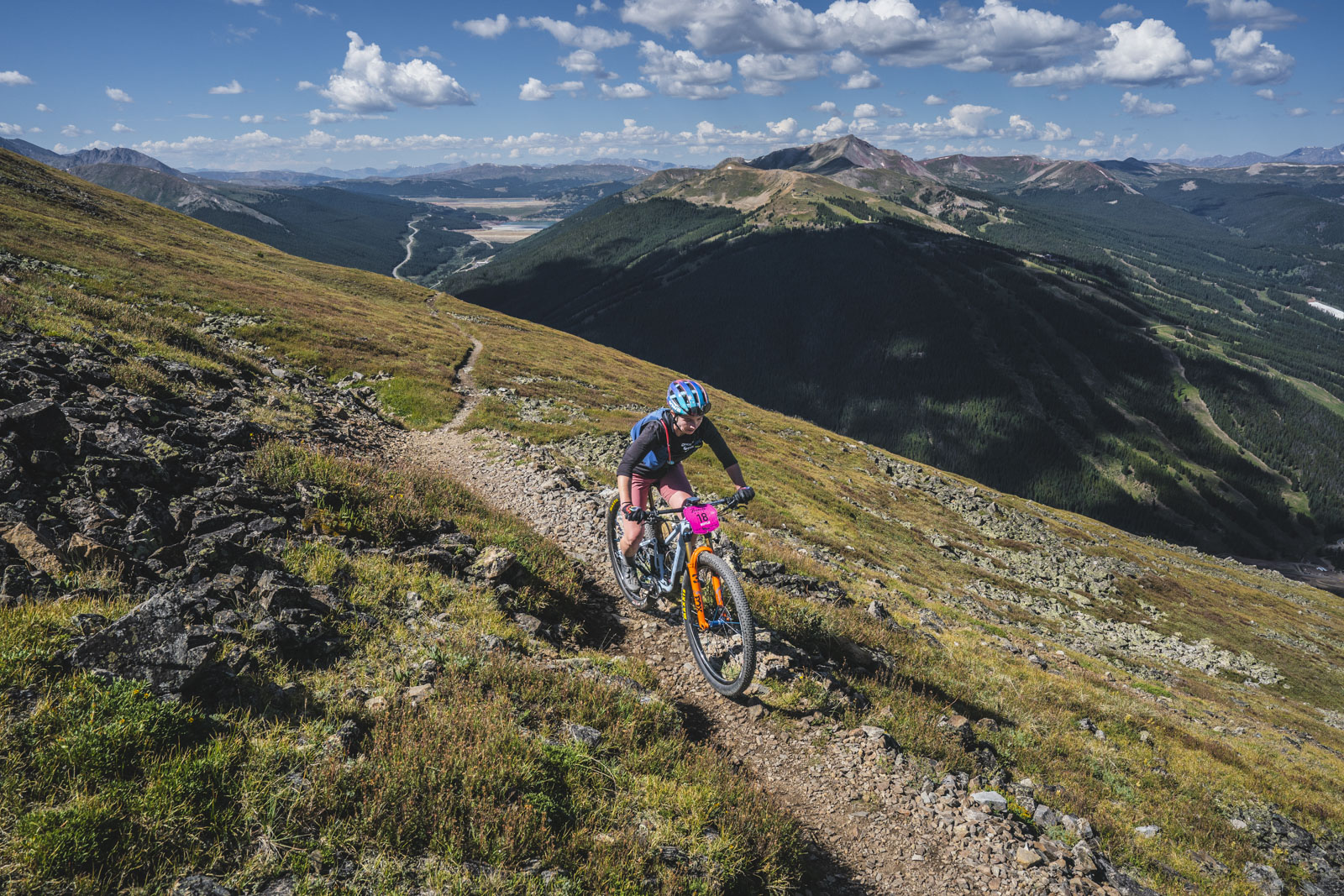
What did you think of this story?
